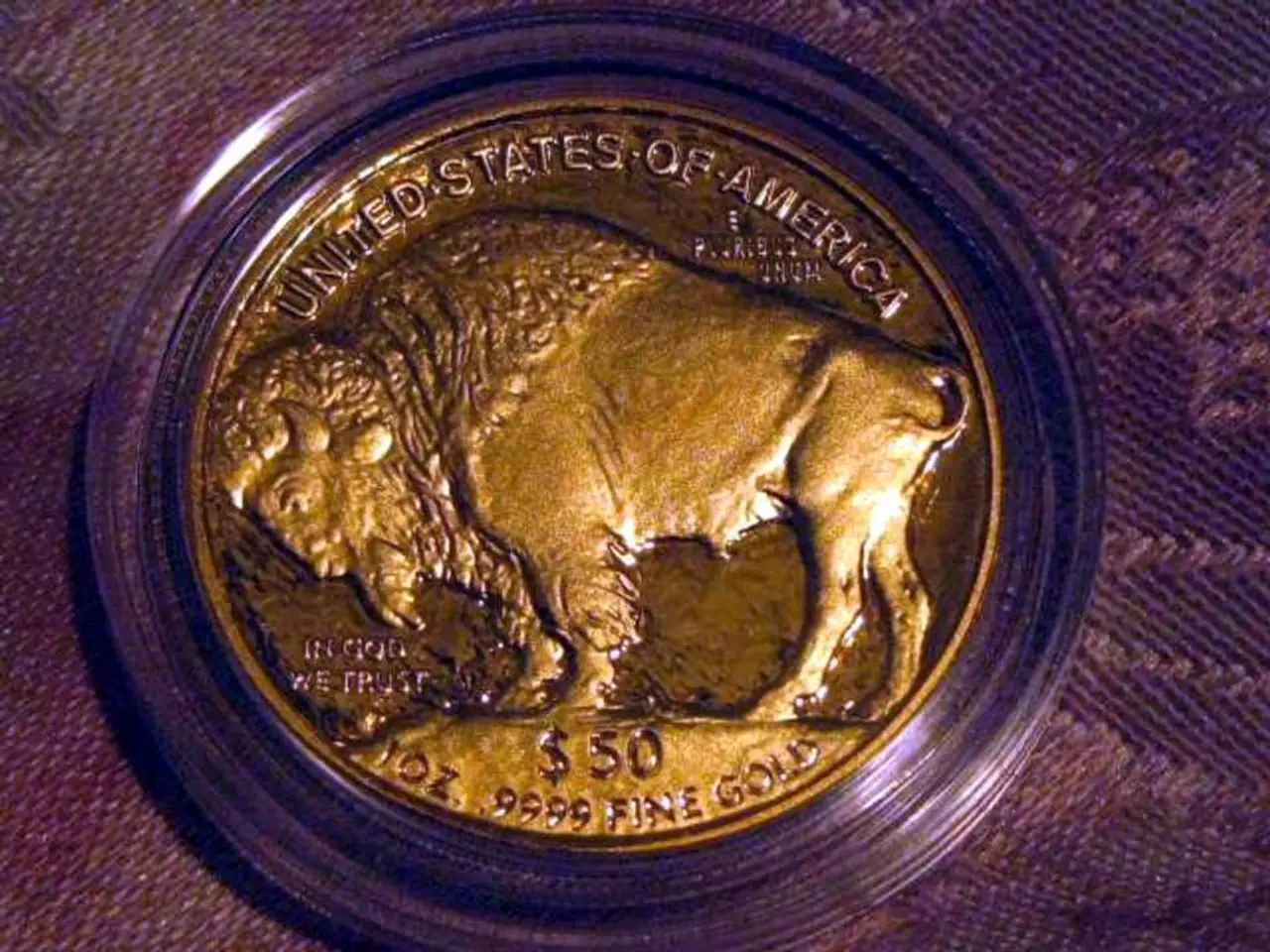Fed Ducks Trump's Demands, Keeps Rates Steady
In defiance of Trump's calls, the Federal Reserve opted against reducing interest rates. - In the face of Trump's requests, the US Federal Reserve remains unwilling to reduce interest rates
Let's get down to it: the interest rate in the United States remains unscathed at a reasonably high level. The US Federal Reserve (Fed) has refused to budge, keeping the key interest rate within a range of 4.25% to 4.5%. This decision comes despite relentless pressure from former President Donald Trump, who's been screaming for rates to plummet.
After a phase of high interest rates aimed at quelling inflation post-pandemic, there were two rate cuts in the US in 2024, but none this year. That's because most analysts predicted that the central bank would steer clear of tweaking the interest rate again.
So, why's the big deal about interest rates?
Well, the benchmark interest rate is the Fed's primo tool for achieving its two main objectives: controlling inflation and ensuring a low unemployment rate. This bad boy decides the rate at which commercial banks borrow from the central bank. This, in turn, plays a role in the fees charged to consumers and businesses. To put it simply, if the Fed drops the interest rate, banks' borrowing costs will eventually come down, leading to cheaper mortgage rates, auto loans, business funding, and credit card interest rates. This could stimulate the economy by giving Americans more spending power and making credit-financed investments cheaper.
But why's Trump so dead set on lowering interest rates?
Much like the European Central Bank (ECB) in the Eurozone, the US Federal Reserve operates independently, meaning politicians can't directly dictate monetary policy. However, that doesn't mean they don't drop hints—or barrage the Fed Chairman with criticism and demands. Trump has been hounding for lower interest rates for ages to fire up the economy. To get his point across, Trump has publicly criticized Fed Chair Jerome Powell, calling him everything from "stupid" to "dumb."
So, why won't the Fed oblige Trump?
Three main reasons:
- The Fed sees little need for action because the inflation rate is still ballpark to its target of 2%, and the labor market remains robust.
- The economic outlook is a bit murky thanks to Trump's tariffs, which increased prices for imported goods and scared off some investors.
- Geopolitical unrest, specifically tensions between Israel and Iran, could disrupt the oil market and drive prices up, sapping the energy out of the US economy.
In summary, the Fed's decision not to lower interest rates reflects the institution's commitment to keeping inflation in check. It's clear that the Fed values economic data over the whims of any one politician, even one who happens to be the former President of the US.
- Keywords
- Interest rate
- Federal Reserve
- Donald Trump
- Central bank
- United States
- Economy
- Inflation
- ECB
- Jerome Powell
- Coronavirus
- Expanded Knowledge
- The Fed's decision to hold the interest rate steady can be understood as the central bank choosing to prioritize price stability, or checking inflation, over political considerations (such as appeasing the former President). This reflects the Fed's commitment to economic independence and data-driven decision-making[1][5].
- Tariffs imposed by the former Trump administration have contributed to inflationary pressures, which the current Fed is wary of exacerbating by loosening monetary policy too soon[2].
- Tensions between Israel and Iran could have significant consequences for the global oil market and, by extension, the US economy[4].
The Commission, with regards to the common agricultural policy, has also taken steps to ensure that their proposals are financially viable for businesses, while maintaining consistency in politics and general news. In the US, the Federal Reserve's decision not to lower interest rates despite pressure from former President Donald Trump, reflects the institution's priority on controlling inflation and maintaining a robust labor market over political considerations, similar to how the European Central Bank operates independently.







